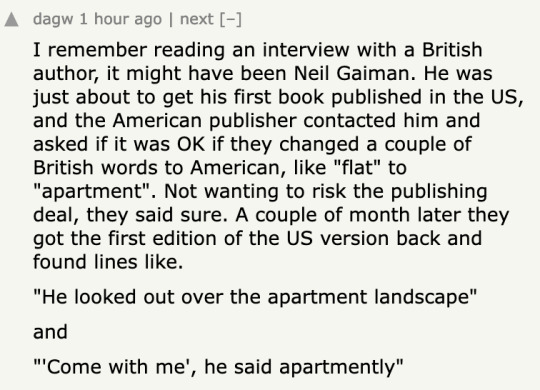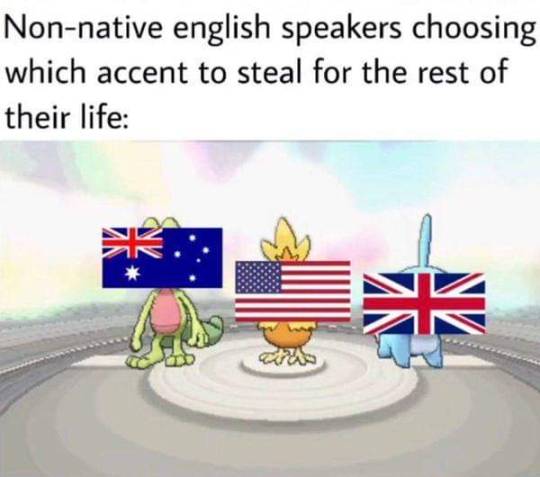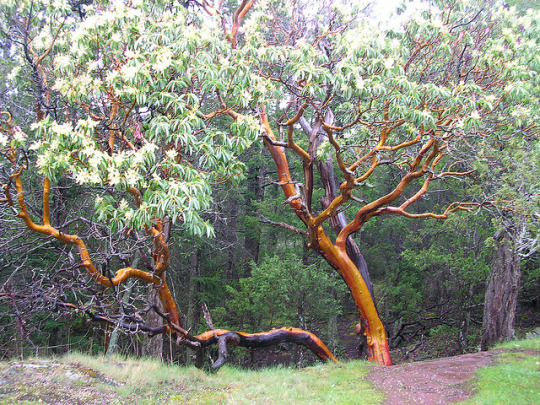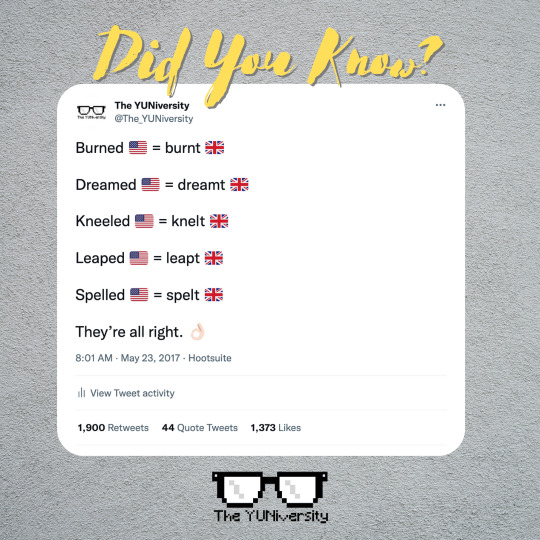#american english
Text
i'm conducting an experiment. everyone who's from an english speaking country state your country, regional area and what you call the following images. i need to see something









#ex: united states > south > sodapop#please rb so more people see#american english#australian english#british english#canadian english#english#english language#dialects#accents#american accent#australian accent#british accent#canadian accent#english accent#america#australia#england#canada#those four are my target audience but all answers from around the world are welcome!!#tumblr#discourse#experiment
24K notes
·
View notes
Text

@neil-gaiman did that actually happen to you? Pretty funny nevertheless
31K notes
·
View notes
Text
Writing Tips
Punctuating Dialogue
✧
➸ “This is a sentence.”
➸ “This is a sentence with a dialogue tag at the end,” she said.
➸ “This,” he said, “is a sentence split by a dialogue tag.”
➸ “This is a sentence,” she said. “This is a new sentence. New sentences are capitalized.”
➸ “This is a sentence followed by an action.” He stood. “They are separate sentences because he did not speak by standing.”
➸ She said, “Use a comma to introduce dialogue. The quote is capitalized when the dialogue tag is at the beginning.”
➸ “Use a comma when a dialogue tag follows a quote,” he said.
“Unless there is a question mark?” she asked.
“Or an exclamation point!” he answered. “The dialogue tag still remains uncapitalized because it’s not truly the end of the sentence.”
➸ “Periods and commas should be inside closing quotations.”
➸ “Hey!” she shouted, “Sometimes exclamation points are inside quotations.”
However, if it’s not dialogue exclamation points can also be “outside”!
➸ “Does this apply to question marks too?” he asked.
If it’s not dialogue, can question marks be “outside”? (Yes, they can.)
➸ “This applies to dashes too. Inside quotations dashes typically express—“
“Interruption” — but there are situations dashes may be outside.
➸ “You’ll notice that exclamation marks, question marks, and dashes do not have a comma after them. Ellipses don’t have a comma after them either…” she said.
➸ “My teacher said, ‘Use single quotation marks when quoting within dialogue.’”
➸ “Use paragraph breaks to indicate a new speaker,” he said.
“The readers will know it’s someone else speaking.”
➸ “If it’s the same speaker but different paragraph, keep the closing quotation off.
“This shows it’s the same character continuing to speak.”
#writing#writing tips#story ideas#reference#knowledge#writing reference#writerslife#writer things#writeblr#english#grammar#commas#dialogue#punctuation#american english
76K notes
·
View notes
Text

#reddit memes#english#english language#learning english#australia#australian english#american english#british english#uk#twitter#tweets#funny twitter#twitter memes#twitter jokes#funny shit#funny#funny tweets#memes#fresh memes#dank memes#viral tweets#internet memes#minyicho#lol#lmao#haha#relatable#relatable twitter#relatable tweets#relatable memes
1K notes
·
View notes
Text
One of the biggest pet peeves that I have about casual vs. rule-book grammar is how to make a name that ends in "s" possessive.
As in, let's say that you have a friend named James. If you wanted to refer to his house in casual grammar, you very regularly see people write that out as "James' House," and that is correct.
However, people started using "James'" because they assumed that "James's" was incorrect, but that isn't true. In fact, "James's" is often considered more grammatically correct than the alternative, and when it comes to essays and formality, "James's" is often considered a safer bet towards grammatical accuracy.
Different formats and rule-books for modern essays have different rules and favoritism, but the majority of them generally agree that "James's" is better than "James'."
#rambles#english#language#grammar#american english#english language#possessive nouns#words#word#essay#essays
77 notes
·
View notes
Text
❎ American English
❎ British English
✅ Elvish English from LOTR
40 notes
·
View notes
Text
Madrone, Madrona, or Arbutus?

The common name of the tree Arbutus menziesii depends on where you are or where you are from.
North American members of the genus are called Madrones, from the Spanish name madroño (strawberry tree) although this terminology is not used in Canada. The European species are also called Strawberry Trees from the superficial resemblance of the fruit to a strawbrry; some species are sometimes referred to simply as the “Arbutus”.
In the United States, the name “Madrone” is used south of the Siskiyou Mountains of southern Oregon/northern California and the name “Madrona” is used north of the Siskiyou Mountains according to the “Sunset Western Garden Book”. In British Columbia, the trees are simply known by the name “Arbutus.”
All refer to the same tree, Arbutus menziesii, native to the Pacific Northwest and Northern California regions. It is Canada’s only native broadleaved evergreen tree. Some species in the genera Epigaea, Arctostaphylos and Gaultheria were formerly classified in Arbutus. As a result of its past classification, Epigaea repens (Mayflower) has an alternative common name of “trailing arbutus”.”
(The original source of this on Wikipedia seems to have vanished so I’m cross-posting from an article from Washington State University.)
#british columbia#bc#washington#oregon#arbutus#madrone#madrona#trees#english#pacific northwest#pnw#canadian english#american english#dialectology#language#linguistics
93 notes
·
View notes
Text
I have just started learning Portuguese, and I am fascinated by the pronunciation of European Portuguese compared to Quebecois French: we both completely omit a significant proportion of the vowels in our words in basically the same way. But whereas the attitude in Quebec seems to be that this is wrong or bad somehow, when learning European Portuguese it is considered the correct pronunciation. So the immediate conclusion I would draw is that there is still a strong "metropole = correct" bias.
But: Nobody ever seems to imply that the Brazilian pronunciation, where all the vowels are actually pronounced, is inferior. In fact, when trying to learn Portuguese as a second language, Brazilian Portuguese seems to be the standard.
To me, arguing that Quebec French is somehow inferior or less correct than France French has always seemed absurd, like arguing that Canadian or American English are somehow less correct than British English.*
And yet I know that a lot of people think that any English that isn't RP is inferior or incorrect, and that speaking RP means that you "don't have an accent". 🙄
I haven't studied Spanish, so I don't know what the attitudes are towards the respective dialects there.
I imagine this has all been researched and I am curious to learn more. I feel like in my limited experience, on a scale of how much the metropolitan dialect is valued over the colonial dialect, French is the highest and Portuguese is the lowest, with English somewhere in between, but I could be completely off base. I wonder what the factors are that affect these attitudes.
*I should disclose my personal bias that I vastly prefer Quebecois French: It's pithy! It's evocative! It goes straight for the gut.
#lingblr#dialects#linguistics#metropolitan dialect#colonial dialect#language#European Portuguese#Brazilian Portuguese#Quebecois French#France French#British English#American English#Canadian English
42 notes
·
View notes
Text


Website | Twitter | Instagram | Medium | Pinterest | Ko-fi | eBook
#vocabulary#spelling#burned#burnt#dreamed#dreamt#learned#learnt#spelt#spelled#American English#British English
10 notes
·
View notes
Text
Things I love in American-English
Mirror (meer). Squirrel (squearl). Horror (whore).
Sunnyside up!! Like how adorable of a phrase is that for eggs. Over easy/medium/hard are also fun. 🍳
Fanny pack
Fall 🍂
“Orng” (orange)
#for reference I’m also American#anyway this sounds like it’s trying to be backhanded I swear I just like these words#it’s a positivity post#language#american english#Quinn posts
26 notes
·
View notes
Text
part 2 of my experiment: what english-speaking country are you from, what region and what do you call the following images? if you don't know what the first image is please try to guess i'd love to see it









#ex: australia > victoria > bread#please rb so more people can see#american english#australian english#british english#canadian english#english#english language#dialects#accents#american accent#australian accent#british accent#canadian accent#english accent#america#australia#england#canada#those four are my target audience but all answers from around the world are welcome!!#tumblr#discourse#experiment#click the link for part one
496 notes
·
View notes
Text
15 notes
·
View notes
Text
The age of old dilemma: the fandom I’m writing for is American English but I speak British English, so which spellings to use? 🤔
190 notes
·
View notes
Text
Random Fact #6,546
In Canada, "lineup" is typically another word for line (as in, one person standing behind another while waiting their turn).

In the US, "lineup" specifically refers to the horizontal line suspects are put in when someone is a witness.

#little known fact#random fact#random facts#did you know#random factoid#random factoids#yes really#language facs#english language#language dialects#dialects#langblr#language learning#country facts#canada#the us#the united states#united states of america#american english#canadian english
9 notes
·
View notes
Text
#requested#language poll#poll blog#random polls#silly polls#stupid polls#polls#silly poll#tumblr polls#poll#pick one#this or that#chips#crisps#potato chips#potato crisps#snacks#food poll#english poll#english language#american english#british english#languages#english langblr#word poll#words#american culture#british culture#american food#british food
4 notes
·
View notes
Text

I didn’t realize that the pretentious Brit denouncing of Americanisms started this early 🤣 (from Mencken’s The American Language)
#hl mencken#english#american english#American vs British English#prescriptivism#the American language
5 notes
·
View notes